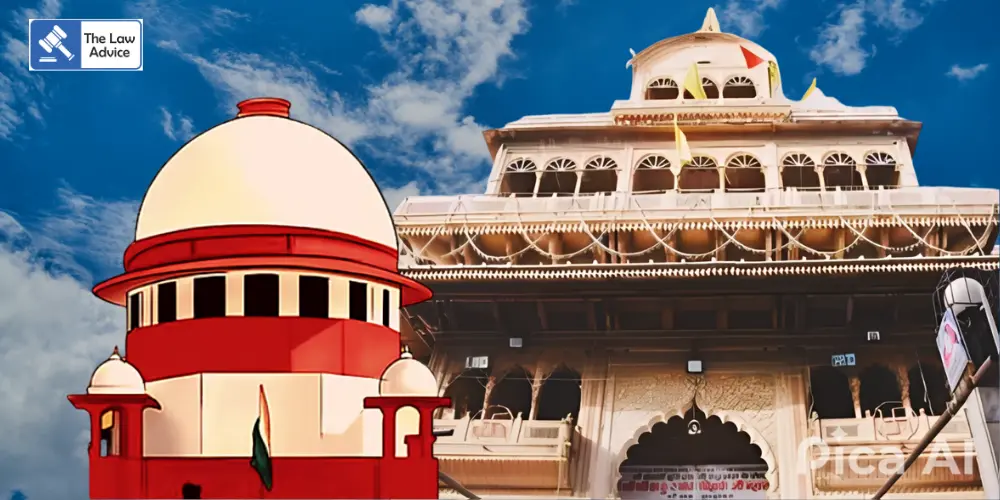
In a significant turn of events, the Supreme Court of India on Friday raised strong objections to the Uttar Pradesh Government’s swift move to promulgate an ordinance enabling state intervention in the affairs of the revered Banke Bihari Temple in Vrindavan. The bench voiced serious constitutional and procedural concerns, hinting at a possible recall of its earlier judgment that permitted the State to use the temple’s funds for administrative purposes.
The Bench comprising Justice Sanjay Kishan Kaul and Justice Sudhanshu Dhulia asked the UP government why it was in such “haste” to bring in an ordinance shortly after the Court’s previous ruling, and whether due consultation with stakeholders, especially temple priests and devotees, had taken place.
Justice Kaul noted sharply,
“You moved at lightning speed after our judgment. Why was there no transparency or public consultation before such a sensitive religious move?”
The ordinance, passed in July 2024, gives the State sweeping powers to form a “Temple Management Committee” that would oversee the functioning, rituals, finances, and even the infrastructure of the Banke Bihari Temple. It also allows the State to allocate funds from temple donations to non-religious developmental activities around Vrindavan.
The ordinance was widely criticized by temple sevaits (traditional priests) and Hindu religious bodies who argued that the ordinance infringes on religious autonomy and customary practices of the temple, which is over 150 years old and holds deep cultural and spiritual significance.
In a rare development, the Bench said it is inclined to recall or review its own earlier judgment (delivered in May 2024), which had allowed the UP government to regulate temple funds “in public interest” for better management. The Court observed that the ruling may have been misinterpreted or overreached by the executive branch.
“Our intention was not to give a blanket authority to the government to bypass religious customs or assume control over religious institutions,” the bench clarified.
The Court directed the Advocate General of Uttar Pradesh to file a detailed affidavit explaining the rationale, urgency, and stakeholder consultations preceding the ordinance.
The Banke Bihari Temple is not just a religious destination; it is a massive pilgrimage and tourism hub. Every year, lakhs of devotees visit the temple, particularly during Janmashtami and Holi, generating crores in donations and economic activity.
Devotees and religious leaders have expressed concerns that bureaucratic control could erode the temple’s spiritual essence and disrupt age-old traditions maintained by hereditary priests.
The Court posted the matter for further hearing on August 20, 2025, and said no coercive steps should be taken under the ordinance until then.
Website designed, developed and maintained by webexy